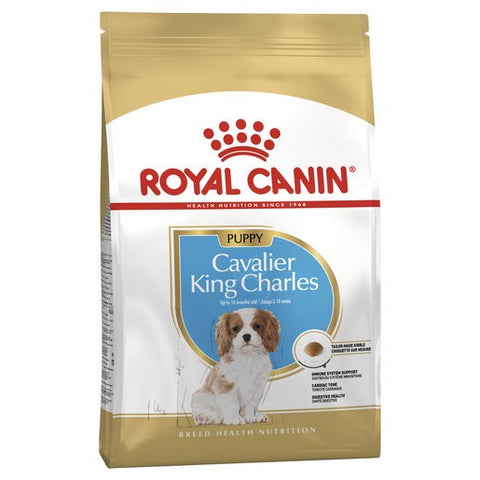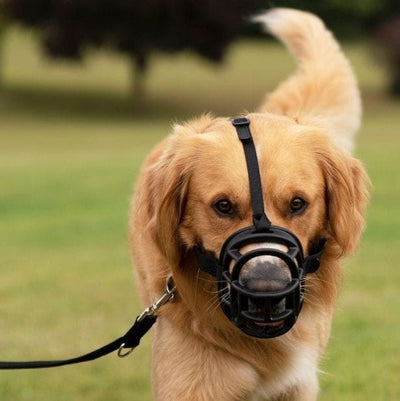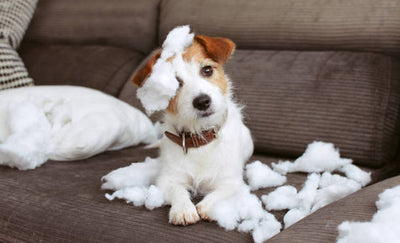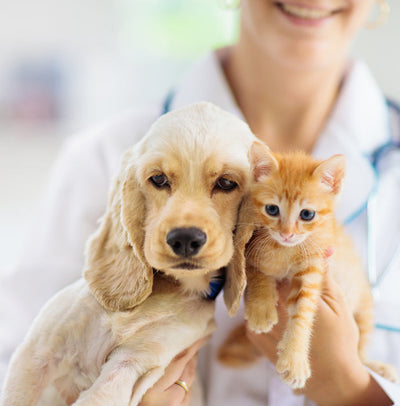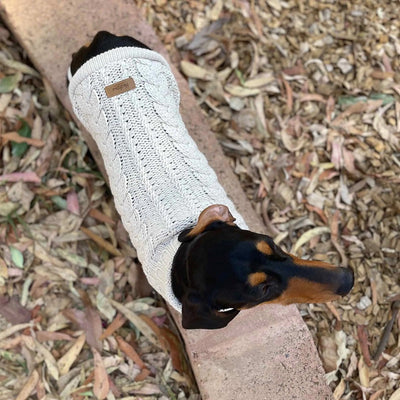 If you're considering adding a furry friend to your family, look no further than the charming King Charles Cavalier dog breed. With their adorable faces and affectionate personalities, these pups make wonderful companions for both individuals and families alike. In this comprehensive guide, we'll delve into everything you need to know about the King Charles Cavalier breed, from their history and temperament to their care and training needs.
If you're considering adding a furry friend to your family, look no further than the charming King Charles Cavalier dog breed. With their adorable faces and affectionate personalities, these pups make wonderful companions for both individuals and families alike. In this comprehensive guide, we'll delve into everything you need to know about the King Charles Cavalier breed, from their history and temperament to their care and training needs.
Originating in England, the King Charles Cavalier breed is renowned for its regal appearance and gentle nature. These small to medium-sized dogs are characterised by their signature floppy ears, expressive eyes, and silky, feathered coat. Whether you're a first-time dog owner or a seasoned pet enthusiast, this article will provide you with valuable insights to help you make an informed decision about bringing a King Charles Cavalier into your home.
Discover the King Charles Cavalier's charming personality traits, exercise requirements, and health considerations. Explore the breed's suitability for different living environments and learn about their compatibility with children and other pets. By the end of this ultimate guide, you'll have a comprehensive understanding of the King Charles Cavalier dog breed and be ready to welcome one into your loving home.
History and Origin of the King Charles Cavalier
The history of the King Charles Cavalier breed dates back to the 17th century, during the reign of King Charles II of England. The breed was highly favored by the king, who was rarely seen without his loyal companions by his side. They were often depicted in paintings and tapestries of the time, showcasing their close bond with the royal family.
Originally known as the English Toy Spaniel, the breed went through several changes in appearance before settling into its current form as the King Charles Cavalier. The breed's popularity waned during the Victorian era but experienced a revival in the 1920s when an American named Roswell Eldridge offered a cash prize for dogs resembling those seen in old paintings. This led to the restoration of the breed's original characteristics, including the distinct domed head and flat face.
Today, the King Charles Cavalier is recognised by various kennel clubs around the world and is beloved by dog enthusiasts for its rich history and charming demeanor. Their regal heritage is still evident in their elegant appearance and gentle nature, making them a sought-after breed for dog lovers worldwide.
Physical Characteristics and Appearance of the King Charles Cavalier
 The King Charles Cavalier is a small to medium-sized breed, with an average weight ranging from 15.9 to 8.2 kilograms. They have a well-balanced body structure, with a slightly longer body than height. Their most distinctive feature is their expressive eyes, which are large, round, and dark in colour. These eyes are often described as "melting" and contribute to the breed's endearing and affectionate expression.
The King Charles Cavalier is a small to medium-sized breed, with an average weight ranging from 15.9 to 8.2 kilograms. They have a well-balanced body structure, with a slightly longer body than height. Their most distinctive feature is their expressive eyes, which are large, round, and dark in colour. These eyes are often described as "melting" and contribute to the breed's endearing and affectionate expression.
Another notable physical characteristic of the King Charles Cavalier is their signature floppy ears. These long, feathered ears frame their face and give them an elegant and regal appearance. Their coat is silky and soft, often with wavy or slightly curly hair. The breed comes in various colours, including Blenheim (chestnut markings on a white background), Tricolour (black and white with tan markings), and Black and Tan.
Overall, the physical characteristics of the King Charles Cavalier contribute to their undeniable charm and make them an irresistible breed for dog lovers of all ages.
Personality Traits and Temperament of the King Charles Cavalier
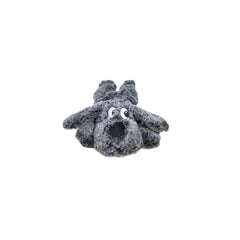 The King Charles Cavalier is renowned for its friendly and affectionate nature, making them excellent companions for individuals and families alike. They are known to be gentle, loyal, and eager to please their owners. Whether you're looking for a lap dog or a playmate, the King Charles Cavalier will happily oblige.
The King Charles Cavalier is renowned for its friendly and affectionate nature, making them excellent companions for individuals and families alike. They are known to be gentle, loyal, and eager to please their owners. Whether you're looking for a lap dog or a playmate, the King Charles Cavalier will happily oblige.
One of the most endearing personality traits of the breed is their love for human interaction. They thrive on companionship and are known to form strong bonds with their owners. This makes them an ideal choice for those seeking a loyal and devoted companion who will always be by their side.
Despite their small size, King Charles Cavaliers have a surprisingly confident and outgoing temperament. They are generally good-natured and get along well with children and other pets when properly socialised. Their friendly nature also makes them suitable for therapy work, as they excel in providing comfort and emotional support to those in need.
It's important to note that King Charles Cavaliers can be prone to separation anxiety if left alone for long periods. They thrive in an environment where they receive ample attention and love. If you have a busy lifestyle, it's crucial to consider whether you can provide the necessary time and companionship to meet their social needs.
Health Issues and Common Ailments in the King Charles Cavalier
Like any dog breed, the King Charles Cavalier is prone to certain health issues and common ailments. It's essential for prospective owners to be aware of these potential concerns to ensure the well-being of their furry friends. DNA testing can be used to screen for some of these conditions but DNA tests are not available for some health concerns.
One of the most prevalent health issues in the breed is Mitral Valve Disease (MVD), a heart condition that affects the functioning of the heart valves. MVD is hereditary and can vary in severity. Regular veterinary check-ups and screenings are crucial to catch any signs of MVD early on and manage the condition effectively.
Another common health concern in King Charles Cavaliers is Syringomyelia (SM), a neurological condition that affects the brain and spinal cord. SM is often caused by the skull being too small for the brain, resulting in compression and fluid-filled cavities in the spinal cord. Symptoms can range from mild discomfort to severe pain and should be addressed by a veterinarian.
Other health issues that King Charles Cavaliers may be prone to include patellar luxation (dislocation of the kneecap), hip dysplasia (abnormal formation of the hip joint), and ear infections due to their floppy ears. Regular grooming, exercise, and a balanced diet can help mitigate some of these health concerns.
Training and Socialisation Tips for the King Charles Cavalier
While the King Charles Cavalier is known for its friendly and sociable nature, proper training and socialisation are still essential to ensure a well-behaved and obedient dog. Starting training and socialisation early in a King Charles Cavalier's life will set a solid foundation for their behaviour.
Positive reinforcement methods work best with this breed, as they respond well to praise, treats, and affection. They are eager to please their owners and are quick learners. Consistency and patience are key when training a King Charles Cavalier, as they can be sensitive to harsh discipline or raised voices.
Socialisation is equally important for the King Charles Cavalier. Exposing them to different people, animals, and environments from a young age will help them develop into well-rounded and confident dogs. Puppy classes, regular walks, and visits to dog-friendly places are great ways to expose them to new experiences and ensure they grow up to be sociable and friendly companions.
Exercise and Grooming Requirements for the King Charles Cavalier
Despite their regal appearance, King Charles Cavaliers are not high-energy dogs. They have moderate exercise needs and can adapt well to both apartment living and more spacious homes. Regular walks, playtime, and mental stimulation are essential to keep them happy and healthy.
As a small breed, King Charles Cavaliers are prone to weight gain if not given enough exercise or if overfed. It's important to monitor their calorie intake and ensure they receive the appropriate amount of exercise to maintain a healthy weight. Obesity can lead to various health issues, including joint problems and heart disease.
Grooming the King Charles Cavalier is relatively low-maintenance, thanks to their silky and feathered coat. Regular brushing to prevent matting and remove loose hair is recommended, especially around their ears and tail. They are moderate shedders, so a weekly brushing session should suffice to keep their coat looking its best. Additionally, regular dental care, nail trimming, and ear cleaning should be included in their grooming routine. Learn more here about this here: Step-by-Step: How to Clean Your Dog's Ears at Home
Feeding and Nutrition Guidelines for the King Charles Cavalier
A well-balanced diet is crucial for the overall health and well-being of a King Charles Cavalier. As a small breed, they have specific nutritional requirements that should be met to ensure they receive the necessary nutrients for optimal growth and development.
High-quality commercial dog food formulated for small breeds is generally recommended for King Charles Cavaliers. These foods are specially designed to meet the nutritional needs of small dogs and often come in kibble sizes that are easier for them to chew. It is recommended to feed your King Charles Cavalier on a breed specific formula.
Portion control is essential to prevent overfeeding and maintain a healthy weight. Obesity can lead to numerous health issues, so it's vital to follow the feeding guidelines provided by the dog food manufacturer and consult with a veterinarian if you have any concerns about your dog's weight. .
It's worth noting that some King Charles Cavaliers may have specific dietary requirements or allergies. If your dog has any sensitivities or health conditions that require a specialised diet, consult with a veterinarian for guidance on selecting the most suitable food for your furry friend.
Where to Find King Charles Cavalier Puppies for Sale
The King Charles Cavalier is a delightful and affectionate breed that brings joy and companionship to any household. Their regal appearance, friendly nature, and adaptability make them ideal companions for individuals and families alike.
However, it's essential to consider the breed's specific needs and potential health concerns before bringing one into your home. Regular veterinary care, proper training and socialisation, and a balanced diet are crucial to ensure the well-being of your King Charles Cavalier.
By following the guidelines and insights provided in this ultimate guide, you'll have a comprehensive understanding of the King Charles Cavalier dog breed and be well-prepared to welcome one into your loving home.
© weknowpets 2024



